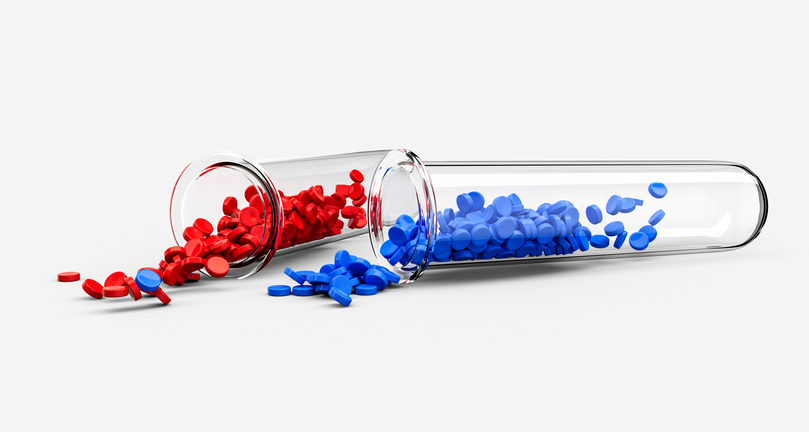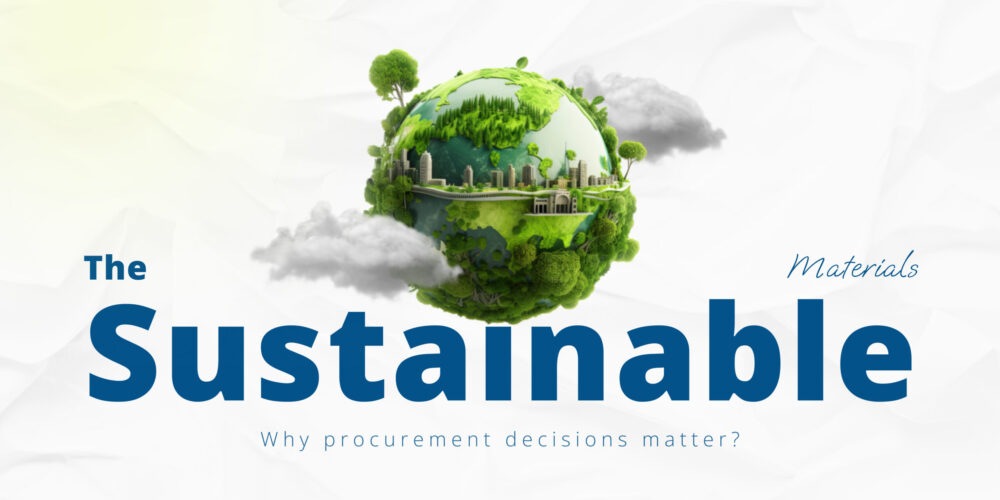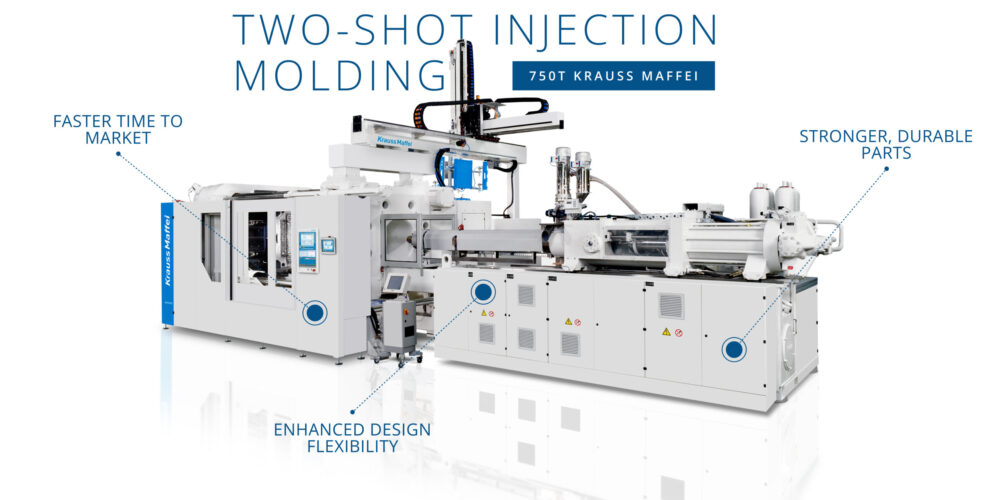A new wave of tariffs is reshaping how American manufacturers think…

Selecting The Proper Thermoplastic For Your Product
Material selection is a critical consideration when designing or modifying a plastic component. Proper injection molding material selection impacts the manufacturing processes, quality, and the product’s durability during its lifetime. A common cause of part failure is incorrect material selection. Below, we will walk you through how to choose a thermoplastic that will make your project successful.
Understanding Types of Thermoplastics
A thermoplastic is a resin that can be melted and reshaped repeatedly without undergoing any significant chemical or molecular structure change. Two of the most common types of thermoplastics are standard and engineering grade. Standard grades tend to be lower cost and are used in applications where robust mechanical properties are not as crucial. Engineering plastics offer superior performance, such as heat resistance, chemical stability, and high mechanical strength, but they come at a higher cost.
The Application’s Requirements are Crucial
Even though thermoplastics can be grouped by standard or engineering grades, every thermoplastic has unique characteristics. One of the draws to plastic is that it can be blended with fillers to enhance strength or additives to enhance its properties for UV protection, flame resistance, and antimicrobial protection.
The objective for most engineers is to produce a cost-effective part that will meet their needs. This is best done by looking at the key elements of the part’s engineering requirements. Working with an experienced molder will help you to find a compromise, if needed, between desired properties and cost. Answering some of these questions and highlighting the most critical ones can help you understand the properties your product requires.
- Will the part be exposed to harsh environmental conditions, either consistently or intermittently?
- Will it be exposed to chemicals or solvents?
- Does it need to be compatible with other elements?
- Will it be exposed to extremely high or low temperatures?
- Does it need to be strong, flexible, or impact-resistant?
- Will it be used with microwaves, radiation, or X-rays?
- How critical is the surface finish?
- What are acceptable tolerances?
- How complex is the shape?
- How critical is recyclability or biodegradability?
- Is it expected to have a long lifespan?
- How will the quality of the product be assessed?
Some Thermoplastics Used in Injection Molding
New thermoplastics are constantly being developed to address specific needs. Base polymers can have numerous variations based on additives and manufacturing processes. Because of this, thousands of thermoplastics exist, each with different properties, ease of manufacturing, and price points. However, some polymers are more popular than others. Below is a high-level overview of some commonly used standard and engineering thermoplastics. Always work closely with your injection molder before choosing a resin you are not familiar with using.
Standard Thermoplastics
Polypropylene (PP) – When you need high impact resistance, excellent durability, and high chemical resistance, consider PP. It is also safe for food contact but not for use in high-temperature applications or those exposed to UV light. This is found in living hinges, consumer goods, and automotive components.
Polyethylene (PE) – Includes variants like Low-Density Polyethylene (LDPE) and High-Density Polyethylene (HDPE). The higher the density of the PE, the greater the stiffness, and the lower the density, the greater the flexibility. It is compatible with most chemicals, and most PEs are recyclable. It is often used in containers, bottles, tool handles, and medical, electrical, and industrial products.
Polystyrene (PS) – PS is a lightweight plastic that is easily molded and offers good rigidity, although it lacks impact strength. This food-safe plastic is used for food containers, automotive parts, plastic utensils, and product casings.
Acrylonitrile Butadiene Styrene (ABS) – This common plastic offers superior stiffness and strength as well as impact and abrasion resistance. It is best to avoid high temperatures and solvents with ABS. It is often used to make toys, machine housings, consumer goods, and components used in automotive interiors.
Styrene-acrylonitrile (SAN) – SAN combines the clarity and rigidity of polystyrene with the toughness, strength, and resistance to chemicals of polyacrylonitrile. It is often used in place of polystyrene because of its greater thermal resistance. It is not as impact resistant as ABS but offers better resistance to stress cracking and UV light. Common applications include reusable food containers, cosmetic packaging, housewares, appliances, and automotive parts.
Poly (methyl methacrylate) (PMMA) – Also known as acrylic, PMMA is prized for its outstanding clarity, weatherability, and resistance to UV light and aging. It is more brittle than polycarbonate but can be a cost-effective alternative for applications not requiring high-impact resistance. PMMA is frequently used in light fixtures, signs, automotive taillights, and protective screens.
Engineering Thermoplastics
Polyamide (PA) – Commonly known as Nylon, PA is notable for its high strength, durability, and resistance to both wear and chemicals. It can absorb moisture, which may affect its mechanical properties and dimensional stability. Nylon is extensively used in the automotive industry, consumer electronics, and for mechanical components such as gears and bearings.
Polycarbonate (PC) – PC is highly valued for its impact resistance, clarity, and high-temperature tolerance. It is prone to scratching and has limited resistance to some chemicals. Applications include eyewear lenses, medical devices, and automotive and aerospace components.
Polyoxymethylene (POM) – Also referred to as acetal, this material is known for its high stiffness, strength, and dimensional stability, as well as its low friction and wear resistance. Acetal is chemically weak to strong acids, bases, and oxidizers and, without additives, is prone to quick burning. It’s widely used in precision gears, bearings, electrical insulators, pump and valve components, and snap-fit assemblies.
Polybutylene Terephthalate (PBT) – PBT is a semi-crystalline polymer known for its strength, stiffness, and excellent dimensional stability. It offers good resistance to solvents, chemicals, and heat. It is often used in electrical components (housings, connectors, switchgear), under-hood automotive parts, and computer peripherals.
Polyethylene Terephthalate (PET) – PET offers excellent strength, good dimensional stability, and is recyclable. It is approved as safe for contact with foods and beverages and is resistant to many chemicals.
However, it is hygroscopic and must be dried to reduce the moisture content before processing. PET is commonly used in packaging, sliding elements, bearings, gears, and automotive and food industry applications.
Material selection can be a complex process with so many properties – electrical, mechanical, thermal, chemical, tribological, and more. Choosing the wrong material can lead to a range of issues, from poor aesthetics to catastrophic failure. It is critical to collaborate with your injection molder to ensure a material that will meet your needs is chosen.
Deluxe Plastics Provides Technical Advice on Injection Molding Material Selection
The partner you choose to work with matters. Deluxe Plastics offers start-to-finish support for your plastic engineering needs, with a team of experts and advanced capabilities to deliver high-quality plastic parts that match your precise specifications, budget, and timeline requirements. We have a team of engineers with in-depth knowledge of various plastic materials and their properties who will work with you to understand your project’s requirements. Drawing on their expertise, they’ll help you with injection molding material selection, getting the right fit for your project and budget. And, with our ISO 9001:2015 certification, you know you’re getting high-quality results, every time.



